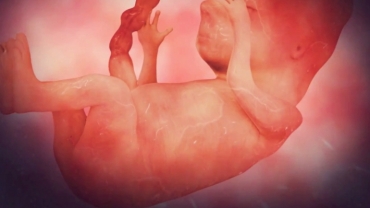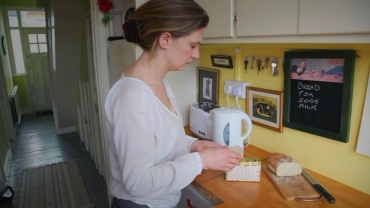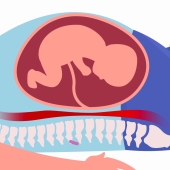1. "It wasn't a real baby."
For so many women, bonding with their baby-to-be happens the moment they learn they are pregnant. Even if she was only pregnant for a short time, that baby was real, plans and dreams were formed in the family's heads, and life had already changed. It doesn't matter how far along she was in her pregnancy; to her, that baby was much more than its gestational stage.
2. "At least you weren't further along."
It's true that the further along you are in your pregnancy, the more complications can happen during the loss—but this phrase tries to diminish the pain felt, perpetuating the idea that a baby lost in the first trimester doesn't necessitate any grief. The pain—both physical and emotional—is very real, even in the very early stages.
3. "It wasn't meant to be."
When hearing this phrase during the grief of loss, it can compound feelings that you've done something wrong or that the person believes you're not fit to be a parent.
4. "Well, at least you can get pregnant."
There are a lot of women in the world who struggle to get pregnant, and that struggle comes with its own pain and grief, but rarely is "pregnancy" the end goal for any woman. Getting pregnant is the first step to parenthood, and a woman who has miscarried is also robbed of that seemingly natural right. Plus, there's really no reason to compare one woman's struggles to another's.
5. "This happens to everyone; it's not a big deal."
For many women seeking support, this phrase is heartbreaking. Miscarriage is certainly common, but that doesn't negate the need for support, compassion, and healthy grieving that comes with loss.
6. "Maybe you should have/shouldn't have..."
It can be very hard on a mom's heart when she finds out her baby is gone, and she may instinctively blame herself, wondering what she did to cause this and why her body failed her. Hearing those statements from someone who is supposed to be supportive is the last thing she needs.
7. "You'll be fine in a few days."
For some women, the grieving period is very short after a miscarriage, and that's totally OK. However, for others, the grief can last awhile and it can be complicated by several other factors—so telling someone they're going to be fine in a few days, whether that comes from a friend or doctor, is very misleading and dismissive. The physical side effects can last several weeks, and she may need even longer to work through the emotional aspects of loss.
8. "Be grateful for what you have."
When someone is in pain, most of us know that telling them to "suck it up" isn't exactly helpful. This phrase, often said to women who have older children and are grieving their miscarriage, is the same sentiment, just dressed up a little differently. Regardless of the number of children you've already given birth to, it's perfectly normal to grieve after losing a pregnancy.
- 81 views













